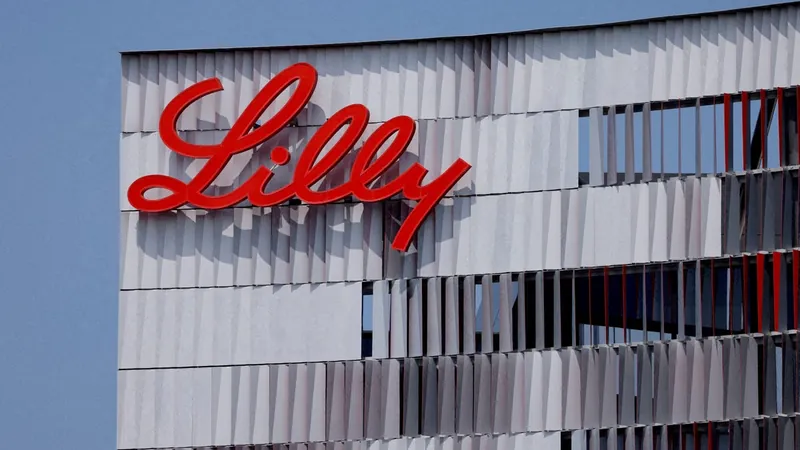
FDA Cracks Down on Off-Brand Weight Loss Drugs: What This Could Mean for Prices
2024-12-26
Author: Ken Lee
FDA Cracks Down on Off-Brand Weight Loss Drugs: What This Could Mean for Prices
In a significant announcement, the United States Food and Drug Administration (FDA) declared that the recent shortage of Eli Lilly’s weight loss medications, Zepbound and Mounjaro, has been resolved. Consequently, the FDA has mandated that specialty pharmacies and online retailers cease the sale of off-brand versions of these drugs, raising serious implications for consumers.
The FDA has flagged safety concerns regarding these unapproved alternatives, warning patients about the potential risks associated with their use. “The FDA is aware that some patients and healthcare professionals may consider unapproved versions of GLP-1 drugs, including semaglutide and tirzepatide, for weight loss,” the agency stated last week. "This can be risky because unapproved versions lack the FDA’s oversight regarding their safety, effectiveness, and quality."
The agency emphasized that patients should seek prescriptions from qualified healthcare providers and obtain their medications from state-licensed pharmacies.
Patrizia Cavazzoni, director of the FDA’s Center for Drug Evaluation and Research, reassured the public that Eli Lilly has successfully met the demand for Zepbound and Mounjaro, effectively eliminating the need for off-brand versions. She stated, "Lilly has developed reserves of finished product and has scheduled substantial additional production to ensure supply meets or exceeds projected demand."
What Does the FDA’s Decision Mean for Consumers?
The decision has far-reaching implications, particularly in the context of skyrocketing demand for GLP-1 class drugs such as Zepbound and Mounjaro. These medications belong to the same family as Novo Nordisk’s Wegovy and Ozempic, both renowned for their effectiveness in weight loss.
In response to this surge in demand, telehealth services and compounding pharmacies, including Hims and Ro, have started offering off-brand and more affordable alternatives to Zepbound and Mounjaro. However, the FDA's latest ruling compels these businesses to halt distribution of these unapproved products within a specified timeframe of 60 to 90 days, depending on the size of the operation.
This regulatory action is being interpreted as a victory for Eli Lilly, potentially influencing how consumers access these drugs and could even lead to an increase in their prices. The concern is that with fewer options available, the market could shift toward a pricing landscape that favors the manufacturer.
Understanding Zepbound and Mounjaro
Both Zepbound and Mounjaro are FDA-approved medications, with Zepbound primarily used for treating obesity and Mounjaro serving as a treatment for diabetes. Despite their different therapeutic indications, both drugs share the same active ingredient: tirzepatide.
As consumers navigate this changing healthcare landscape, it's essential to remain informed about approved treatments and the importance of accessing medications safely and legally. The push for regulation and safety emphasizes the FDA's role in protecting public health, especially amid a burgeoning demand for weight loss solutions.
Stay tuned for further updates as the implications of this decision unfold!

 Brasil (PT)
Brasil (PT)
 Canada (EN)
Canada (EN)
 Chile (ES)
Chile (ES)
 España (ES)
España (ES)
 France (FR)
France (FR)
 Hong Kong (EN)
Hong Kong (EN)
 Italia (IT)
Italia (IT)
 日本 (JA)
日本 (JA)
 Magyarország (HU)
Magyarország (HU)
 Norge (NO)
Norge (NO)
 Polska (PL)
Polska (PL)
 Schweiz (DE)
Schweiz (DE)
 Singapore (EN)
Singapore (EN)
 Sverige (SV)
Sverige (SV)
 Suomi (FI)
Suomi (FI)
 Türkiye (TR)
Türkiye (TR)